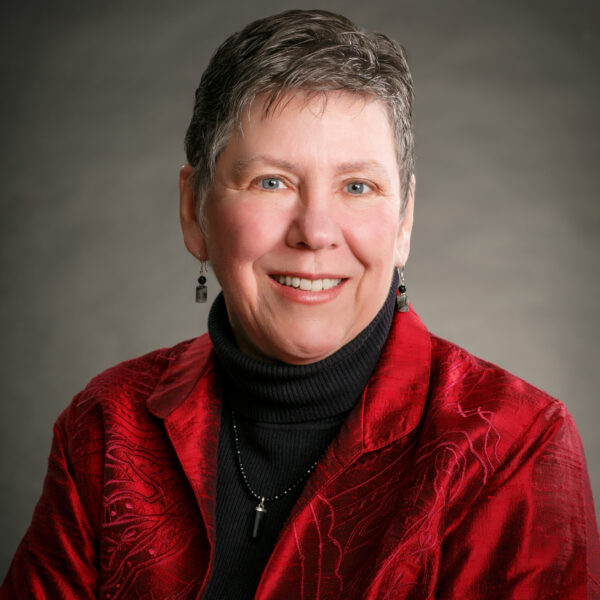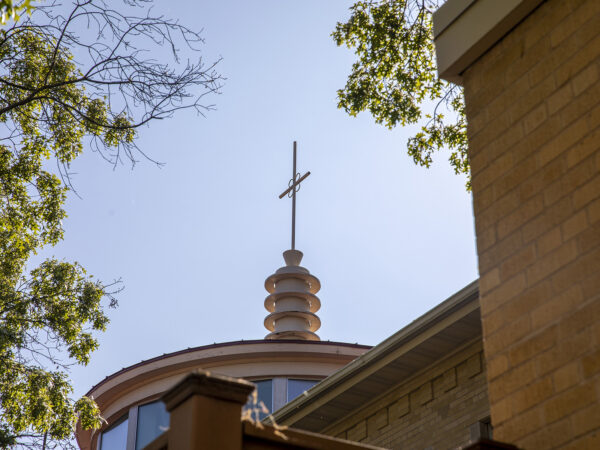Master of Science in ThanatologyHenry Predolin School of Nursing, Business, Education, and Health Sciences
Guide the human experience of death, dying, and grief
Thanatology is the cross-disciplinary study of dying, death, loss, and grief and is both an academic and applied discipline. Thanatologists, defined broadly, are individuals who have been specifically trained about the dying and grieving process, including evidence-based practices for individual and family care, interprofessional healthcare team competencies, and current research. The MS in Thanatology prepares graduates for employment or volunteer work in a variety of settings where care for the dying and/or grieving are important including hospices; hospitals; faith communities; non-profit organizations; family, children and teen grief centers; funeral homes; and academic settings. The program expects students to bring and further develop excellent critical thinking and writing skills, resulting in graduates who are competent practitioner-scholars.
The program philosophy is that dying, death, loss, and grief are primarily human experiences with medical aspects, and not merely medical events that affect humans. The curriculum is designed to prepare individuals to create, implement, and provide non-medical support services for the dying and the bereaved, in collaboration with relevant healthcare professionals.
The Association for Death Education and Counseling, the primary professional association for the discipline, has identified and articulated a comprehensive list of the domains essential to competency in thanatology: The Essential Body of Knowledge. This program’s curriculum is grounded in the Body of Knowledge, with an orientation toward cultivating individuals who excel within the field.
Madison, WI
Virtual
30
Thanatology Concentrations
Children, adolescents, and the family
This concentration emphasizes the role of the family as the unit of care, something frequently overlooked in healthcare and clinical care. When combined with the core curriculum, the concentration offers a deep consideration of developmental perspectives when it comes to dying, death, and grief.
Communities and other systems – including healthcare, industry, large businesses, school systems, and more – need death education. This concentration prepares students to cover a wide variety of topics in trainings for audiences that range from organizations to community centers and more.
Diversity, equity, and social justice
This concentration focuses on diversity and equity within communities, across communities and the particular cultures that emerge within family units. All of these are needed to be competent and work with families from a genuine place of humility and “not knowing”.
Faith communities, end of life, and grief support
Faith community leaders do not usually learn about dying, death, grief, and loss while training for their positions as faith community leaders. These courses will offer them a foundation that cuts across thanatology and prepares them for a wide variety of experiences the families they serve may encounter.
Funeral service and aftercare for funeral professionals
Funeral service professionals encounter a wide variety of situations and death scenarios. This concentration prepares students to address difficult situations; to put together aftercare programs for communities; to create death education events; and to help families think through how to prepare a funeral.
This concentration is an examination of grief and loss, and various ways practitioners can support the grieving of all ages.
This concentration provides a close examination of suicidology. Only two courses focus on suicidology but other courses play an important role.
Careers in Thanatology
Earning a Master of Science in Thanatology can lead to a range of rewarding and worthwhile careers in death and grief, including but not limited to:
- Bereavement Program Coordinator
- Grief Counselor
- Hospital Bereavement Support
- Funeral Director
- Faith Community Bereavement Program Development
- Healthcare Professionals
- Active-Duty Military and Veteran Support Personnel
- Non-Profit Family Grief Centers and Grief Camps
- K-12 Educators and School Counselors
- Organ and Tissue Procurement Organizations
- Death Education in Colleges and Universities
- Death Education in Businesses and Communities
Thanatology Featured Courses
THN 600 – Introduction to Thanatology
Introduction to the discipline of thanatology and an overview of the study of dying, death, and bereavement. Topics include perspectives of death (as an individual and as a member of society); how and where we die, how we grieve, and what can be done to provide the best possible care; perspectives of faith questions; strategies to avoid burnout. Includes an introduction to Interprofessional Healthcare (IP), its history, and the Core Competencies for Interprofessional Collaborative Practice from the Interprofessional Education Collaborative (IPEC) report (2016).
THN 615 – Family Systems and Thanatology
Family systems theory, first proposed by Kerr and Bowen (1988), considers the complex inter-dynamics of the family as a unit. This course offers an in-depth exploration of family systems theory applied to end-of-life care and bereavement situations with “the family as the unit of care.” Topics include but not limited to: chronic illness, sudden illness, addiction, and suicide.
THN 630 – Ethics in Death and Dying
Explores the ethical and moral challenges and dilemmas faced both during the dying process and at the end of life for care providers, patients, and families. Ethics will be considered within an applied framework, using case studies in pain management, psychology, suffering, terminating treatment, and mechanical support. This course examines the process of decision making as we determine guidelines for ethical decisions at the end of life. Includes an appreciation for and sensitivity to the additional challenges or difficulties in the EOL decision making process for those who are socioeconomically disadvantaged or have been historically marginalized.
Accreditation
The Association for Death Education and Counseling is not an accrediting body but a professional association of thanatologists that has created, over the past several decades, a Body of Essential Knowledge. The program curriculum is aligned with the ADEC Body of Essential Knowledge.
The teaching philosophy we use across the curriculum is transformational and constructivist, an approach in which students learn through active engagement and ultimately construct their own knowledge. We use learner-focused teaching and mindfully incorporate cross-cultural and international perspectives because we know that attitudes regarding death are shaped by a variety of cultural crucibles that include language, family, the arts, media, previous experience, and many other things we encounter throughout life. In each course, we strive to develop effective communities of learners.
Faculty Spotlight

Janet McCord, Ph.D.
Professor and Director | Master of Science in Thanatology program
“It is critically important to help students thrive as they study with us. I try to guide my students while always being mindful of and recognizing the ways they are successful. Along the way, I strive to develop one-on-one personal relationships with all my students – I ask them to meet with me, I respond to emails within a few hours, and I bring a presence to their online experience, so it feels less like a correspondence course and more like a living and breathing classroom!”
Certificates in Thanatology
Edgewood College has nine post-graduate and post-master’s level certificate programs available. Our asynchronous courses are 100% online. With 12 credits per certificate program, students can complete in one year. But with built-in flexibility, you can also set your own pace. Edgewood offers the following Certificates in Thanatology:
- Children, Adolescents, and Family Grief Support
- Death Education
- Diversity, Equity, and Social Justice in Thanatology
- Faith Communities, End-of-Life, and Grief Support
- Funeral Services and Aftercare for Funeral Professionals
- General Thanatology Studies
- Grief and Bereavement Counseling and Support
- Hospice, Palliative Care, and Family Support
- Suicidology and Postvention
Related Programs
-

On-campus
Bachelor of Arts in Religious Studies
Frequently Asked Questions about Thanatology
What are the admission requirements for the Master’s in Thanatology program?
Applicants to the Master of Science in Thanatology program will be required to have:
- A completed application
- Official transcripts reflecting completion of a bachelor’s degree or its international equivalent with a 2.75 GPA. Transcripts of all undergraduate and graduate academic credits must be submitted.
- A personal essay (500-1,000 words) articulating why the applicant wishes to study thanatology and relevant career goals
- The Test of English as a Foreign Language may be required.
Admissions will be rolling until the first day of classes.
How many credits are required to complete this program?
The Master of Science in Thanatology degree requires the completion of a total of 30 credits.